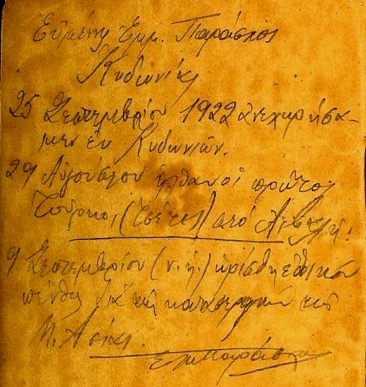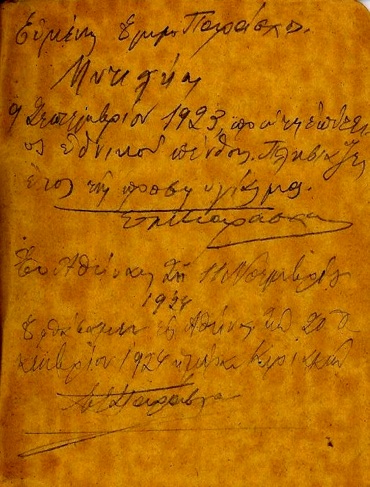4. The end
As Turkey joined Germany in World War I, Aivali found itself under constant watch. In 1916 several Aivaliotes (including a priest) were publicly hanged after they were charged with spying for the British and the Greeks. In 1919 the Greek army took control of the city as it came to fulfill the promise of the 1918 Peace Conference that ceded those lands to the war’s winning coalition, which included Greece.
Three years later, however, as the Kemalist nationalists took over the Turkish government and refused to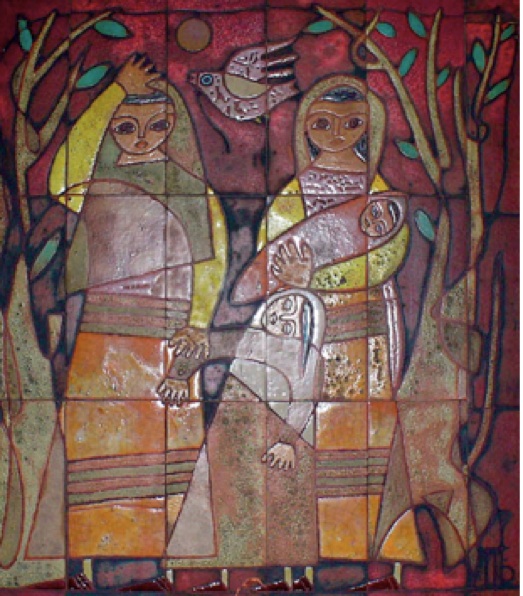 recognize the 1920 Sevres Treaty (which had been signed by the previous Turkish government), the Greek Army found itself undermanned and under-resourced in a hostile area and without moral or legal authority in Asia Minor. As Greece’s war allies became ambivalent about their support, mainland Greece was divided between the factions of King Constantine and Prime Minister Venizelos and it was not long before the Greek army became demoralized and was defeated, thus leaving the Greeks of Asia Minor totally unprotected. Above, Panos Valamakis’ “Refugees.”
recognize the 1920 Sevres Treaty (which had been signed by the previous Turkish government), the Greek Army found itself undermanned and under-resourced in a hostile area and without moral or legal authority in Asia Minor. As Greece’s war allies became ambivalent about their support, mainland Greece was divided between the factions of King Constantine and Prime Minister Venizelos and it was not long before the Greek army became demoralized and was defeated, thus leaving the Greeks of Asia Minor totally unprotected. Above, Panos Valamakis’ “Refugees.”

This unleashed the fury of the victorious Turks, who in the summer and 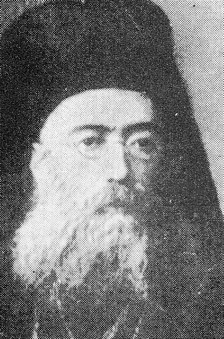 fall of 1922, ethnically cleansed the area by destroying all of Asia Minor’s Christian, Greek and Armenian cities--again. Of special interest were members of the clergy, who had always played a leadership role in the life of these peoples. In Kydonies, Metropolitan Grigorios Orologas (right), along with 30 priests and chanters, was brutally executed.
fall of 1922, ethnically cleansed the area by destroying all of Asia Minor’s Christian, Greek and Armenian cities--again. Of special interest were members of the clergy, who had always played a leadership role in the life of these peoples. In Kydonies, Metropolitan Grigorios Orologas (right), along with 30 priests and chanters, was brutally executed.

Aivali was no more.
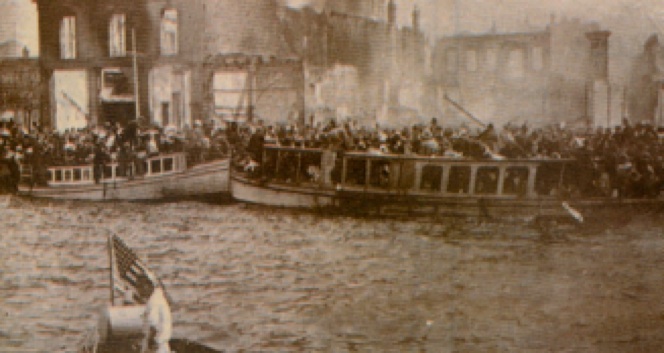
In today’s Turkey, Ayvalic is a prosperous summer resort. It is often visited by descendants of its 1922 inhabitants. Most of those visitors have returned to Greece with the best impressions of hospitality by the authorities and the Turkish families that now occupy their homes.
